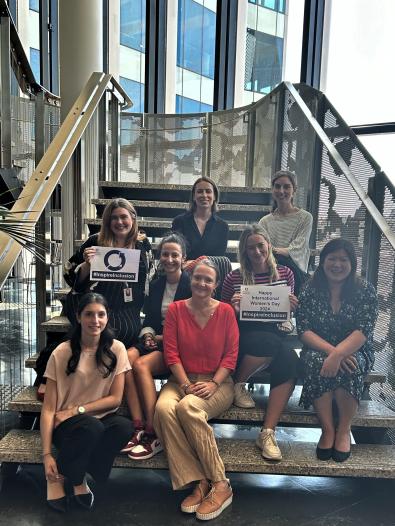Melbourne Water supports gender equity this International Women’s Day, and every day.
This International Women’s Day 2024, Melbourne Water aims to Count her in, invest in women, accelerate progress.
This 2024 UN theme recognises that ‘While important progress has been made, women face significant obstacles to achieving equal participation in the economy.
Equal access to education, employment pathways, financial services and literacy.
We must ensure women and girls are given equal opportunity to build their capabilities and strengthen their capacity to learn, earn and lead.’
Melbourne Water focuses on flexible working to address an area that has historically impacted gender equity. Lack of flexible work arrangements broadly meant that women were not ‘counted in’; it created barriers to gender equity for those in particular with caring or parental responsibilities.
A recent report ascertained that 78.4% of employees working at Melbourne Water during the FY23 had some form of flexible working arrangements in place.
Arrangements such as more hours over fewer days, remote working, flexible start and finish times, part-time, and purchased leave has proven to accelerate the progress of women.
“Since joining Melbourne Water, I have been impressed by the deep commitment to accelerating progress in the gender equity space and the difference it makes for employees. In particular, the coaching available to Managers and employees before, during and after parental leave ensuring the right level of support and connection.” Shae Abel Melbourne Water’s Manager Diversity, Inclusion and Belonging said.

Other shifts ensuring progress in gender equity include paid parental leave – which is available to all employees, regardless of gender. Melbourne Water staff can access supports surrounding these leave options which are accelerating progress significantly.
Almost 52 per cent of staff who accessed parental leave last financial year were women, a figure that has declined by 8.6 per cent compared to 2021.
This is because we’ve seen a shift in caring responsibilities between men and women since the pandemic.
Being able to return from parental leave and access flexible working arrangements for Jess Crawford, Melbourne Water’s Capability & Experience Advisor, meant she could “balance both the needs of my family as a single parent and my role at work”.
“Initially I trialled working part-time hours across five days, then over four days. I then found that what worked best for both home and work was working standard workdays, as care arrangements changed for my child,” Crawford said.
”My manager and team have embraced the true spirit of flexibility, demonstrating a willingness to try new ways of working and sharing feedback with each other about what works.”
An Australian Bureau of Statistics report stated that ‘Women’s participation in paid work had increased considerably over the past 50 years, with Women making up almost half of the paid workforce in Australia in 2020, compared to around 30 per cent in 1966’.
Women are also working longer. This has changed across the generations - particularly at the age when women usually have children. These changes have occurred in conjunction with changes in employment opportunities, greater access to paid parental leave, access to more flexible working arrangements and changes in the structure of the economy.
This highlights that when we Count her in and invest in women, we accelerate progress.
Media contact:



